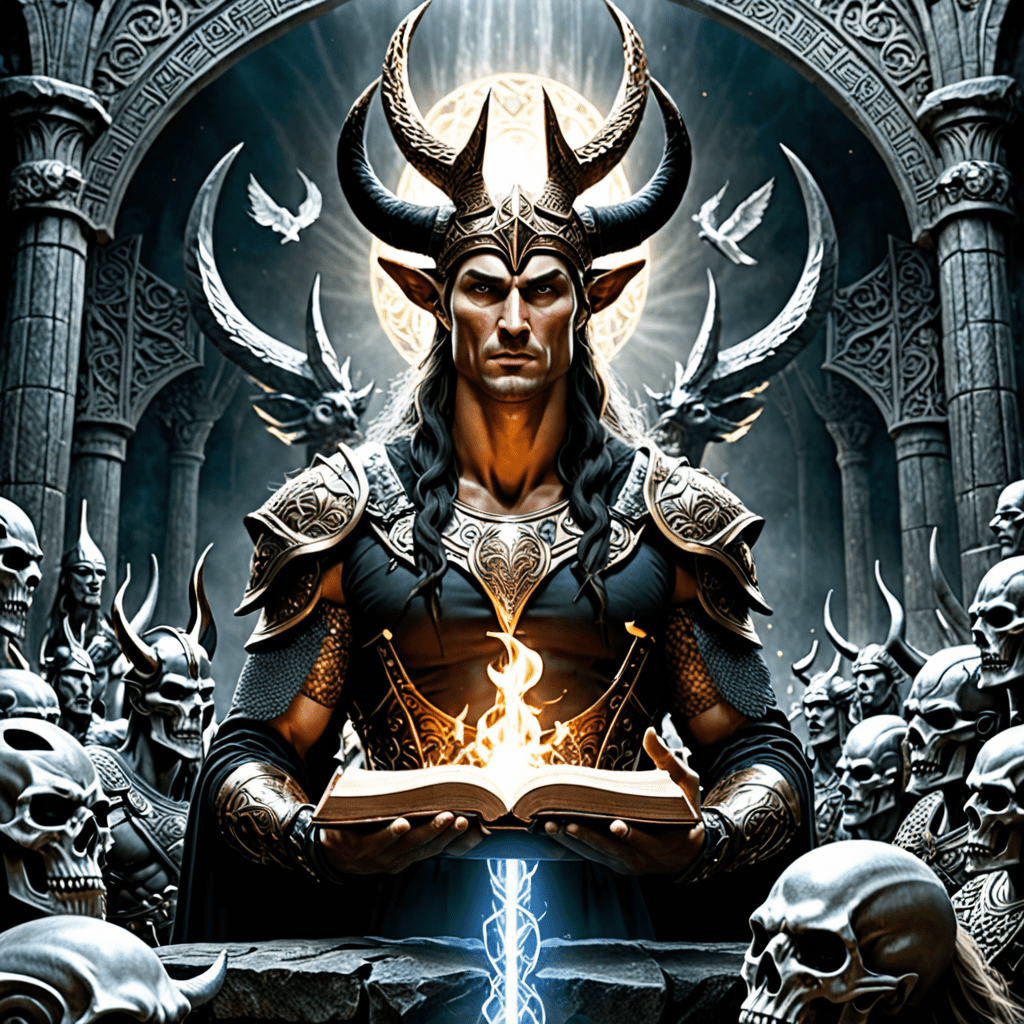The Symbolism of Dreams and Nightmares in Norse Mythology
Understanding the Significance of Dreams in Norse Mythology
In Norse mythology, dreams were believed to hold profound meanings and were often seen as messages from the spiritual realm. The Norse people regarded dreams as a way for gods, goddesses, and other supernatural beings to communicate with mortals. Noteworthy figures such as Odin, the chief god in Norse mythology, was particularly associated with dreams and the gift of foresight. His ability to enter a state of trance-like sleep, known as “seidr,” allowed him to gain insights into the future through dreams.
The Role of Dreams and Nightmares in Norse Prophecy
Dreams and nightmares played a crucial role in Norse prophecy and divination. Seers and wise individuals known as “volvas” interpreted dreams to foresee future events and guide decision-making. Positive dreams were seen as auspicious signs, indicating success, blessings, or protection from malevolent forces. Conversely, nightmares were usually regarded as warnings or omens of impending danger or misfortune. In Norse mythology, nightmares were believed to be messages from malicious spirits or supernatural entities, signaling the need for vigilance or action to avert disaster.
Symbolism of Dream Motifs in Norse Mythology
Dream motifs in Norse mythology often contained powerful symbolism. Images of sacred deities, mythical creatures like dragons or wolves, or elements such as fire, water, and trees could carry significant meanings in dreams. For instance, dreaming of the World Tree, Yggdrasil, symbolized spiritual growth and connection to the cosmos. Dreams featuring the iconic Valkyries, female warriors who chose the slain for Valhalla, were seen as omens of imminent battles or heroic deeds. Understanding these symbols was essential for interpreting the messages conveyed in dreams and unraveling their hidden implications in Norse culture.
The Duality of Nightmares in Norse Beliefs
In Norse mythology, nightmares represented not only fear and distress but also the potential for growth and transformation. While nightmares were often perceived as harbingers of doom or chaos, they were also viewed as catalysts for inner strength and resilience. Overcoming nightmares and facing one’s deepest fears were seen as essential steps in personal development and spiritual evolution. The Norse people believed that confronting the darkness within dreams could lead to enlightenment and empowerment, shaping individuals into courageous heroes who could navigate the challenges of life and the spirit realm.
By exploring the symbolism of dreams and nightmares in Norse mythology, we unveil a rich tapestry of insights into ancient beliefs, values, and the intricate relationship between mortals and the divine. Embracing the wisdom embedded in these ethereal messages offers us a deeper understanding of ourselves, our struggles, and the mysteries of the unseen world.
FAQ: The Symbolism of Dreams and Nightmares in Norse Mythology
What role do dreams play in Norse mythology?
Dreams in Norse mythology often serve as a means of communication between deities, humans, and other beings. They can convey messages, omens, and prophecies, shaping the course of events.
Are nightmares significant in Norse mythology?
Nightmares hold symbolic importance in Norse mythology, representing fears, challenges, or warnings. They can foreshadow difficult times or serve as a call to action for the dreamer.
How do dreams influence the actions of characters in Norse myths?
Dreams influence the decisions and actions of characters in Norse myths by providing guidance, insights, or forewarnings. They often compel individuals to embark on quests, make alliances, or prepare for upcoming challenges.
Can dreams in Norse mythology be interpreted differently?
Yes, dreams in Norse mythology can be subject to various interpretations based on the context, symbols, and personal experiences of the dreamer. Different interpretations may lead to diverse understandings of the messages conveyed in the dreams.





